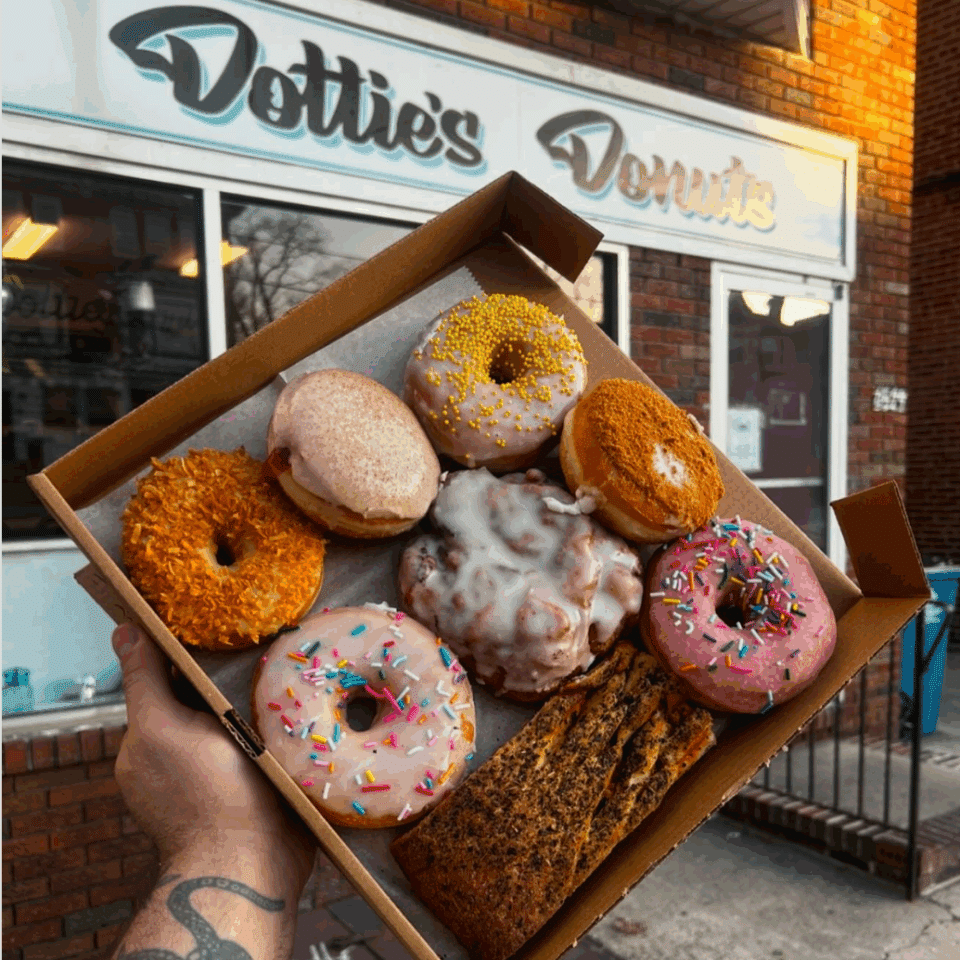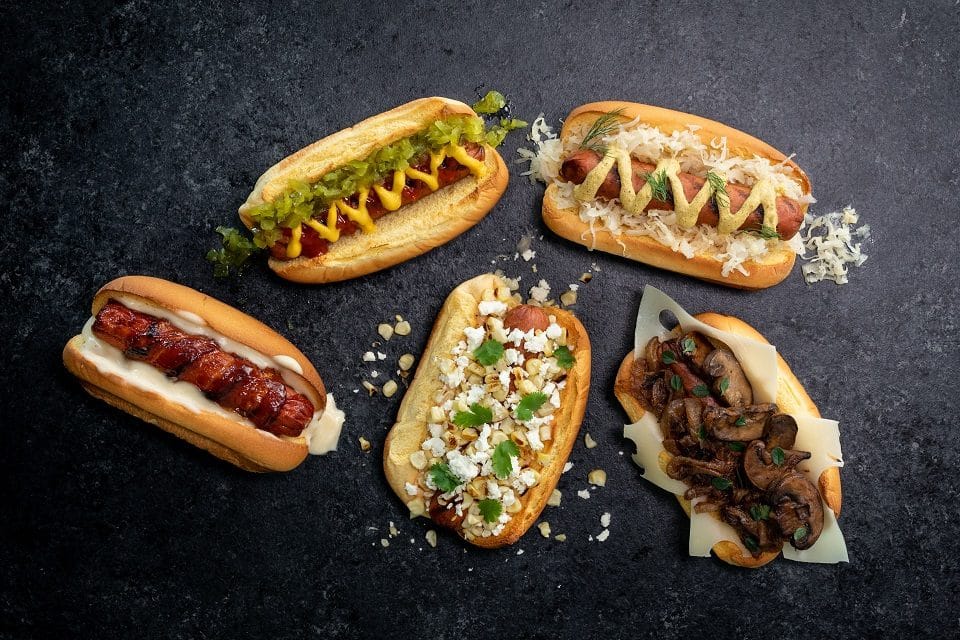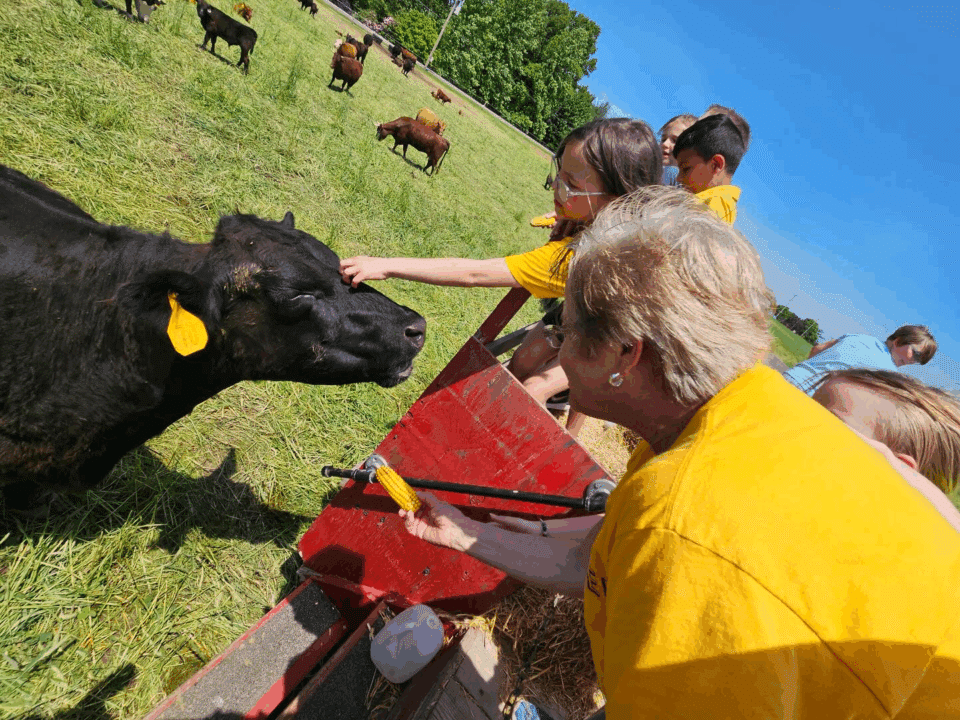Every day, Wednesday through Saturday, the three-person staff at Double Trellis Food Initiative meets at the Dorrance H. Hamilton Center for Culinary Enterprises Commercial Kitchen in West Philadelphia, they tie their aprons on and get to work. Over the next eight hours, they’ll prepare, cook and package between 250 and 275 prepared meals. These meals, made with fresh, nutrient-dense ingredients, will eventually be distributed to food insecure individuals all over the city, via community fridges and community organizations that Double Trellis has partnered with.
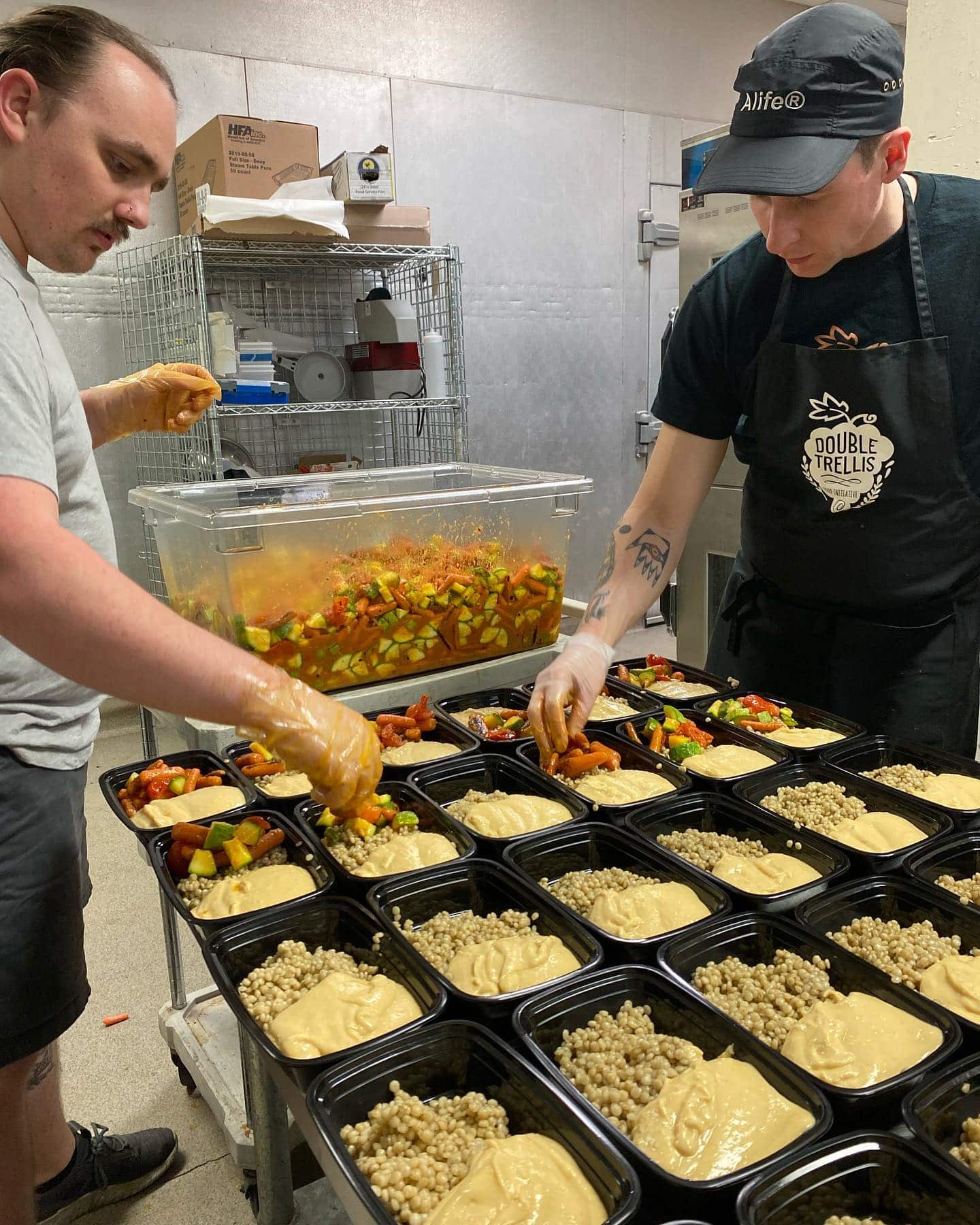
It’s a far cry from the fine-dining kitchens where Double Trellis’ founder, Matthew Stebbins, got his start. For nearly two decades, Stebbins cooked in the kitchens of restaurants — both prestigious and not — often pulling 60- or 70-hour weeks for minimal pay. For the majority of this time, he also struggled with alcohol and drug addiction, at times experiencing homelessness, until checking himself into rehab in 2017.
“When I came back, I really wanted to take some time to learn how to live life,” he says. “I really didn’t know how to do that in any sort of peaceful space of contentment.”
He picked up a part-time job at Miles Table, where he worked until 2020, when the pandemic shut down the majority of cafe and catering companies’ operations. That summer, while the racial justice uprisings were happening in Philly (and across the country), Stebbins decided to cook meals for the protesters.
“I quickly realized that we were feeding the wrong people, though,” he remembers. “All the community members living along the Ben Franklin Parkway and in LOVE Park were kind of just getting walked by, and that was disturbing for me as someone who was formerly unhoused.”
Stebbins quickly pivoted and, thanks to donations and a crew of volunteers, began cooking and distributing meals among the encampments in Center City Philly. He’d make the meals at the Miles Tables kitchen and then deliver them to folks, having profound conversations along the way. A few weeks later, he helped to set up an autonomous kitchen in one of the encampments, complete with refrigeration, grills and sinks, so the people living there could cook for themselves. He says he was inspired to help partially because of his own experiences.
“As someone that was unhoused for a long time, I know what real hunger is like … it’s so different than skipping lunch, it’s demoralizing to your soul in a way that I hope no one ever feels,” Stebbins says. “For me, after having all this experience in fine dining and seeing it for the illusion it was, this glorious thing for wealthy people with all of these other people getting exploited along the way, it was radicalizing.”
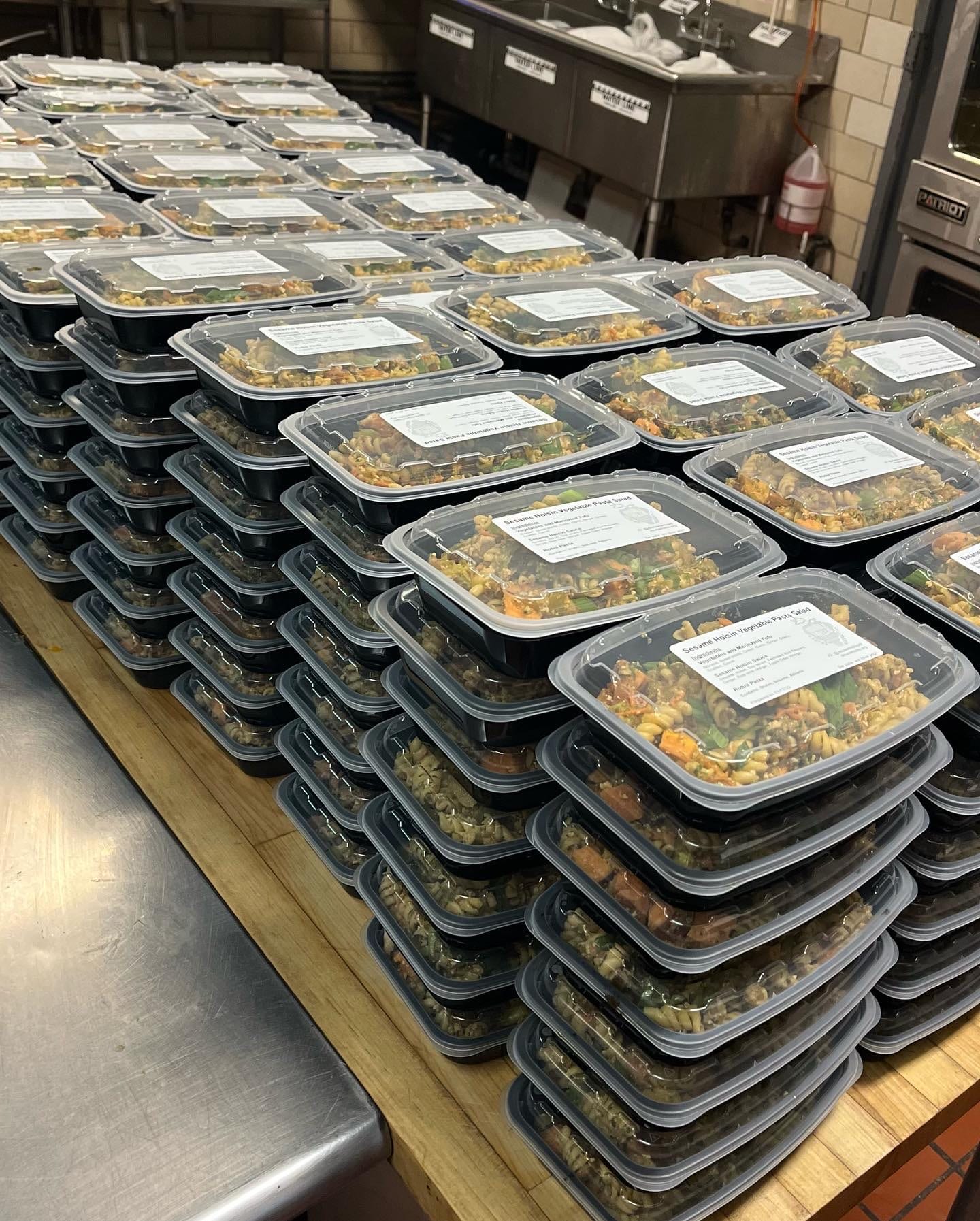
The combination of sobriety, time freed up by the pandemic and “the universe kind of presenting itself to me,” as Stebbins puts it, sent him in a new direction with his work as a cook. He started connecting with other food and community-related organizations, like community fridges and the Workers Revolutionary Collective. In the spring of 2021, he helped start the Coral Street Community Fridge in Kensington [which has since moved to LAVA Space in West Philadelphia and been renamed the Ronnie Vega Fridge]. At that point, he collaborated with 18 different partners to distribute cooked meals across 14 different zip codes.
“It basically just kept going,” Stebbins says. “Once this all got started, I kept thinking, How can I go back to anything else? What is my role in creating a better world?”
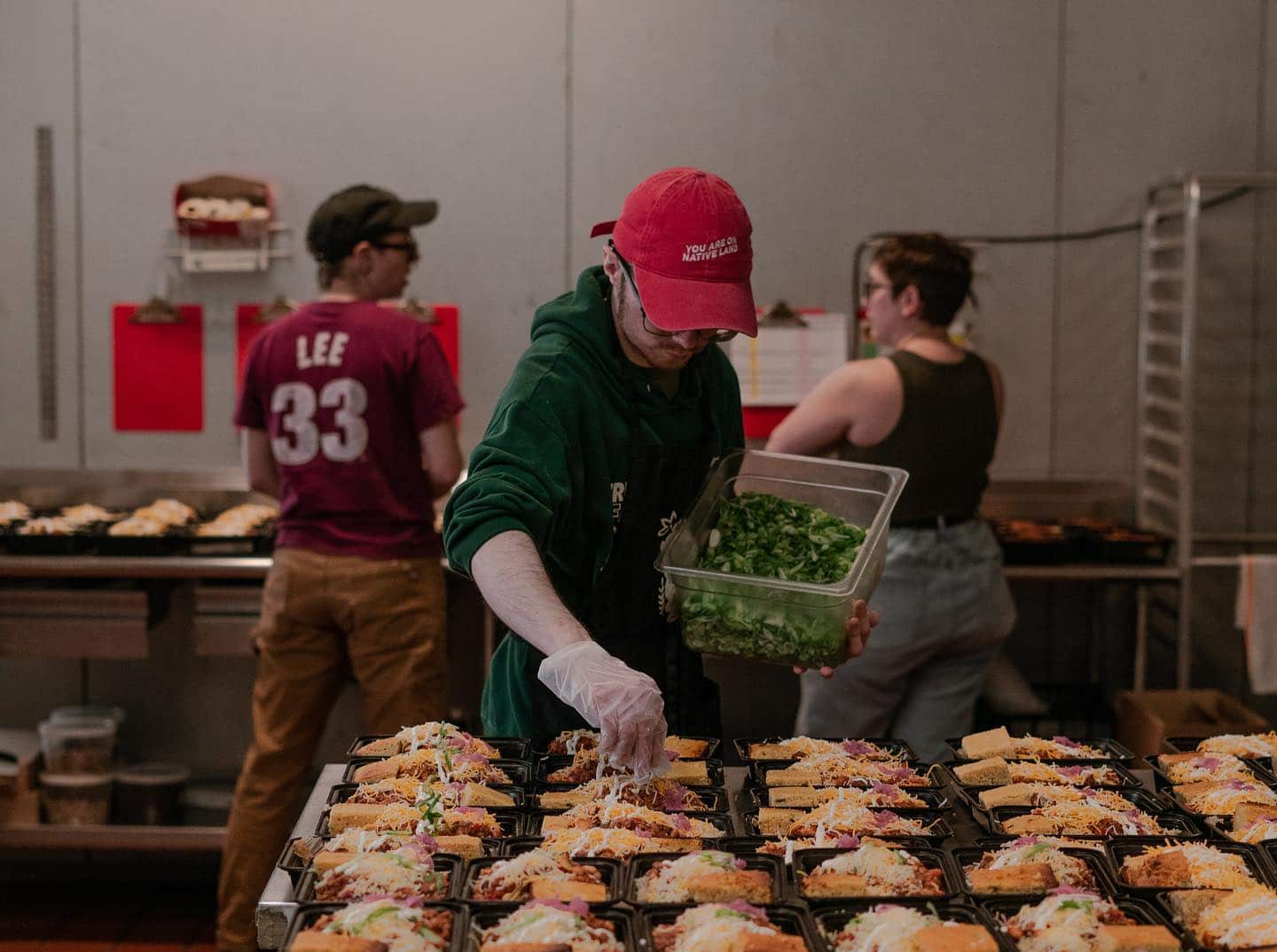
In June of 2021, Double Trellis became more formally organized, starting an Instagram page and obtaining a fiscal sponsor, the Federation of Neighborhood Centers [FNC Philly], which helped them obtain 501(c)(3) status and liability insurance.
“They also mentored me in the different aspects of nonprofit work,” Stebbins notes. “I’m a chef and I didn’t know how to run a nonprofit; I didn’t know the rules and regulations.”
In early 2022, Double Trellis received funding through a grant, and Stebbins was able to hire a small team; the other two folks he works alongside are Adrien Carnecchia and Sam Reed. As a response to the labor exploitation Stebbins experienced and witnessed in the restaurant industry, he was adamant at starting each employee at $20 and hour.
Together, they crank out an impressive number of meals each week. The impact is immense: Since June 2020, they’ve cooked over 53,000 dignified meals and distributed over 65,000 pounds of groceries through a food distribution program.
Dignity is the driving principle behind every single thing the Double Trellis team cooks.
“For me, I ask: Would I make this for someone I cared about? Is this what I would make if I had friends over?” Stebbins says. “Why should there be this level of disconnect of respect for people I know and people I don’t know?”
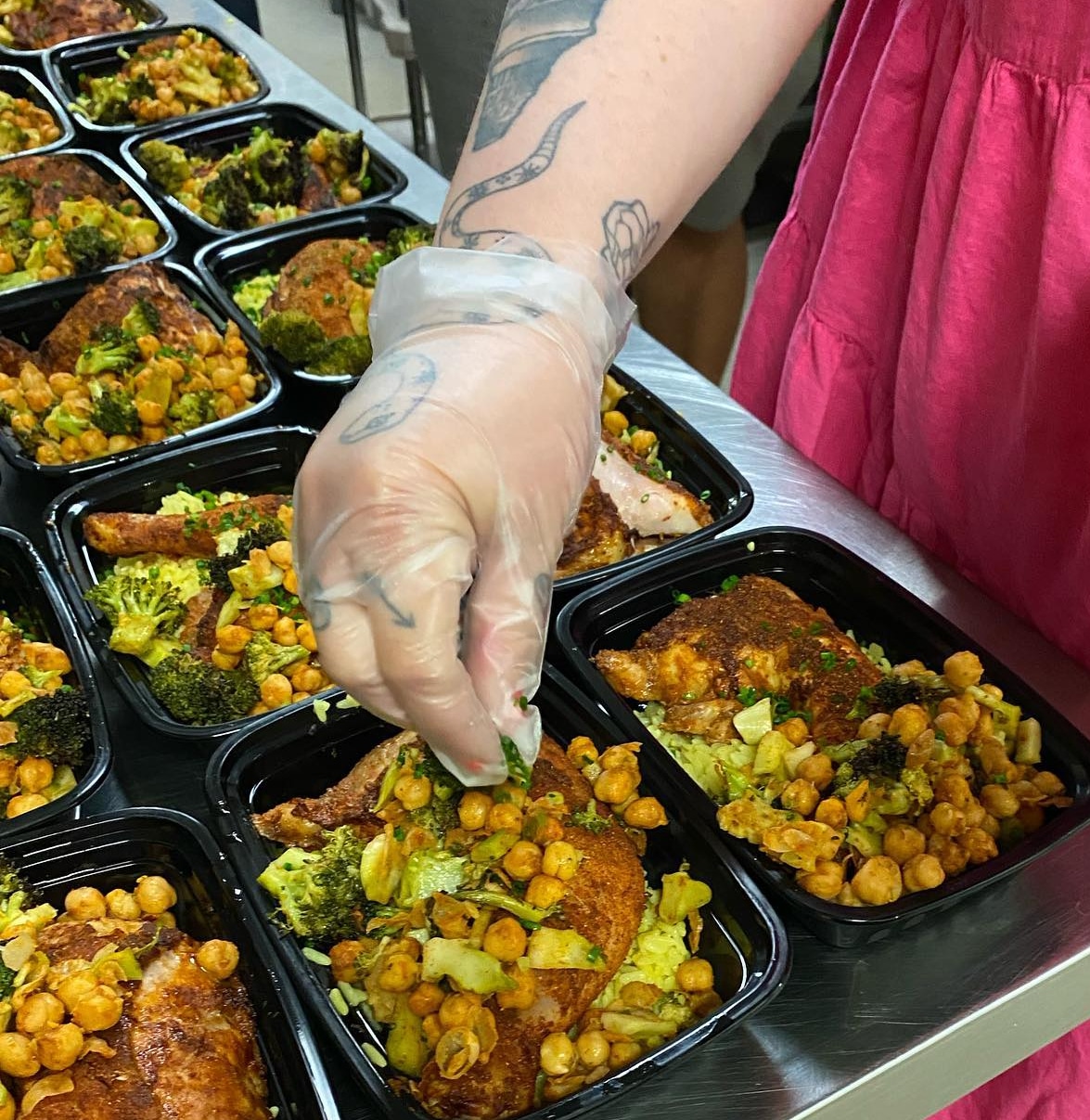
Many people who Double Trellis has provided meals to have shared with Stebbins that it’s the only meal they eat in an entire day. With that in mind, he avoids some of the common free-meal stereotypes, like peanut butter and jelly sandwiches or hyper-healthy meals like quinoa salad.
“Those aren’t sustainable from a caloric or hunger aspect,” he says. “I try to stay away from neoliberal ideologies around ‘nutrition’ — we try to give people what they generally want to eat, things they’re familiar with, not creating a space where we think we know what’s best.”
Even when Double Trellis meals include repeat ingredients (“We make a lot of chicken and rice,” Stebbins says.), he uses his culinary training to create different flavor profiles. He also relies heavily on community feedback to steer what they make each week.
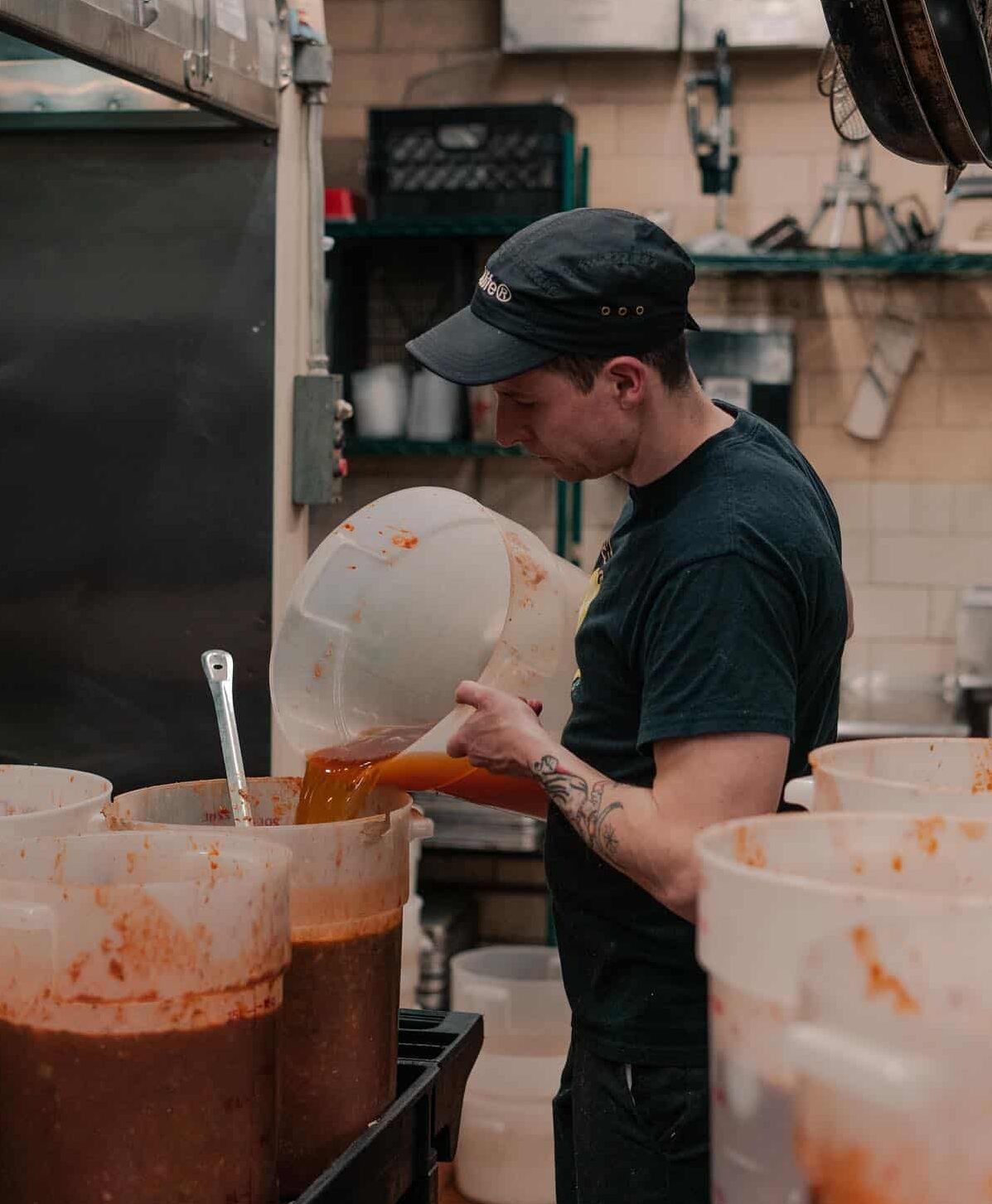
“I don’t really care what I make, I just want people to be happy,” he says. “I’m learning what people love, which is often familiar flavors, like our pasta bolognese which is a big community favorite.”
Cooking and distributing meals are just the beginning for Double Trellis Food Initiative, and Stebbins is currently applying for grant funding to put the next phase of their efforts in place, which is to remove barriers to gainful employment by offering career training to formerly-incarcerated people and underserved communities.
“Our next step is workforce development,” he says. “We have the capacity to teach basics, like heavy prep and knife work, so if someone works with us for four months, they’re going to be able to walk into most kitchens and get an entry-level position.”
Stebbins perceives real potential in this concept, as many of his chef friends have lamented to him about the labor shortage and lack of experienced workers in the restaurant industry.
“If we’re able to help people gain autonomy, it creates this circle: It’s job training where all the meals go to community members,” he says. “That’s so important, even if it’s just one person or small cohort at a time.”
To learn more about Double Trellis Food Initiative, or to get involved, visit its website.
- Photos: Double Trellis Food Initiative

